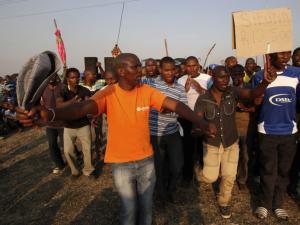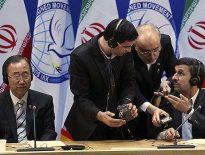There need to be collaborative efforts to address the problems at the country’s mines that led to the violence at Lonmin, in Marikana, the SAHRC said on Friday. “It has become clear that the factors implicit in this tragedy are complex,” the SA Human Rights Commission (SAHRC) said in a statement.

The institution hosted a discussion on the Marikana shooting with the Centre for the Study of Violence and Reconciliation (CSVR), in Johannesburg.
The SAHRC said efforts were required by interested parties from different perspectives.
Referring to its 2010 report on the mining sector in Limpopo, the commission said it found inequality, poverty and the regulatory framework worsened the situation of communities around mines.
The work of the commission of inquiry into Marikana killings would need to be carefully considered, and inclusive of all issues, it said.
Police killed 34 people and wounded 78 when they opened fire on a group of striking mineworkers gathered on a hill near Lonmin’s Marikana mine on August 16.
Earlier on Friday, the CSVR said in a report on the Marikana
violence that Lonmin had not met its obligations under the mining charter. According to the report, Lonmin signed an agreement with the World Bank’s International Finance Corporation in 2007 to develop the local community, but residents said they had seen few changes in the area.
Lonmin’s responsibility in the lead-up to the shooting had not been explored and analysed to date, the CSVR said in the report.
Those interviewed had expressed anger at their lack of infrastructure, housing and sanitation, the large salaries of Lonmin’s management, and the company’s “significant” profits for the past 15 years.
Questions lingered about the company’s role in developing the area. Those interviewed lived in poor conditions and had little long-term job security, with few prospects of improving their living standards. – Sapa





